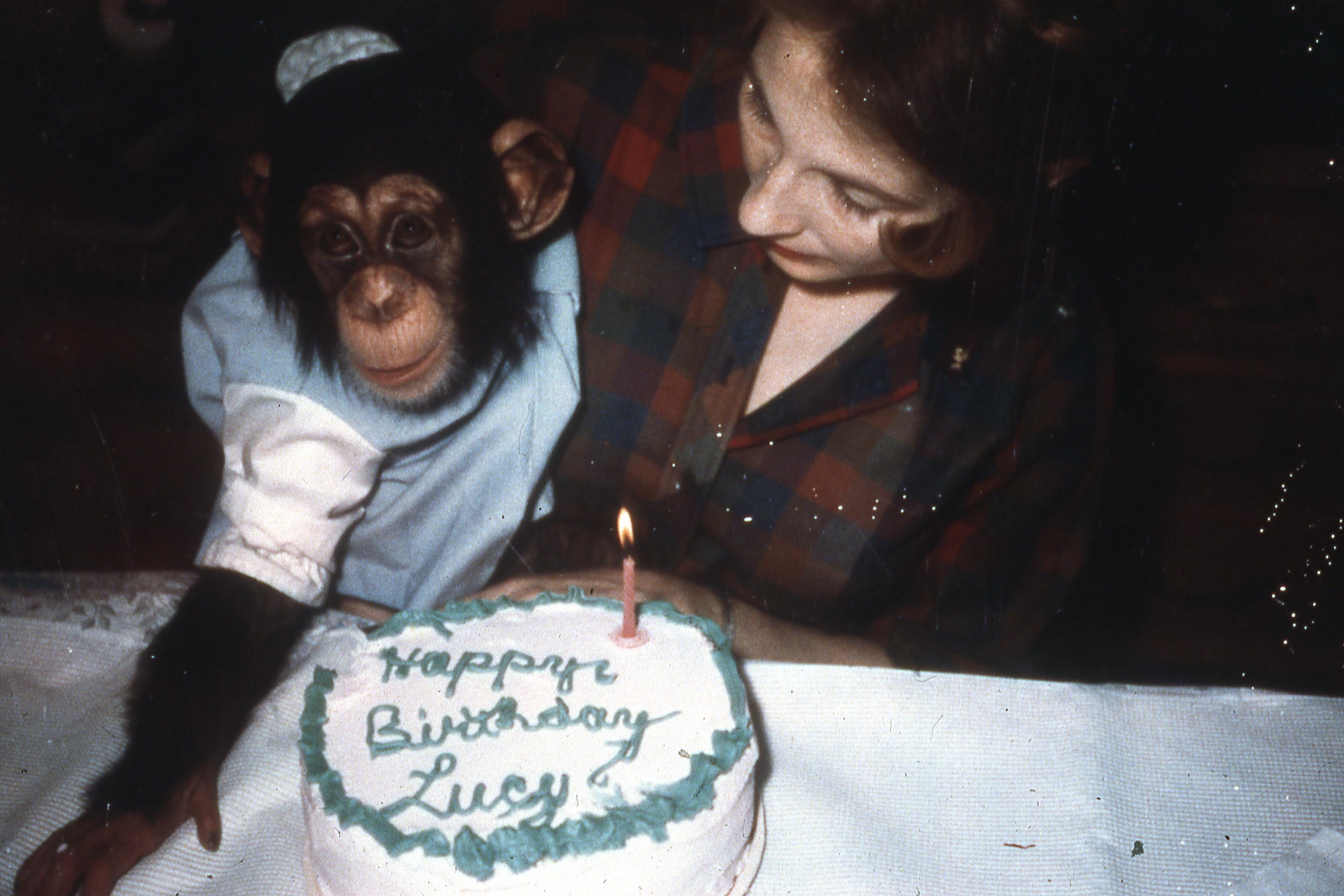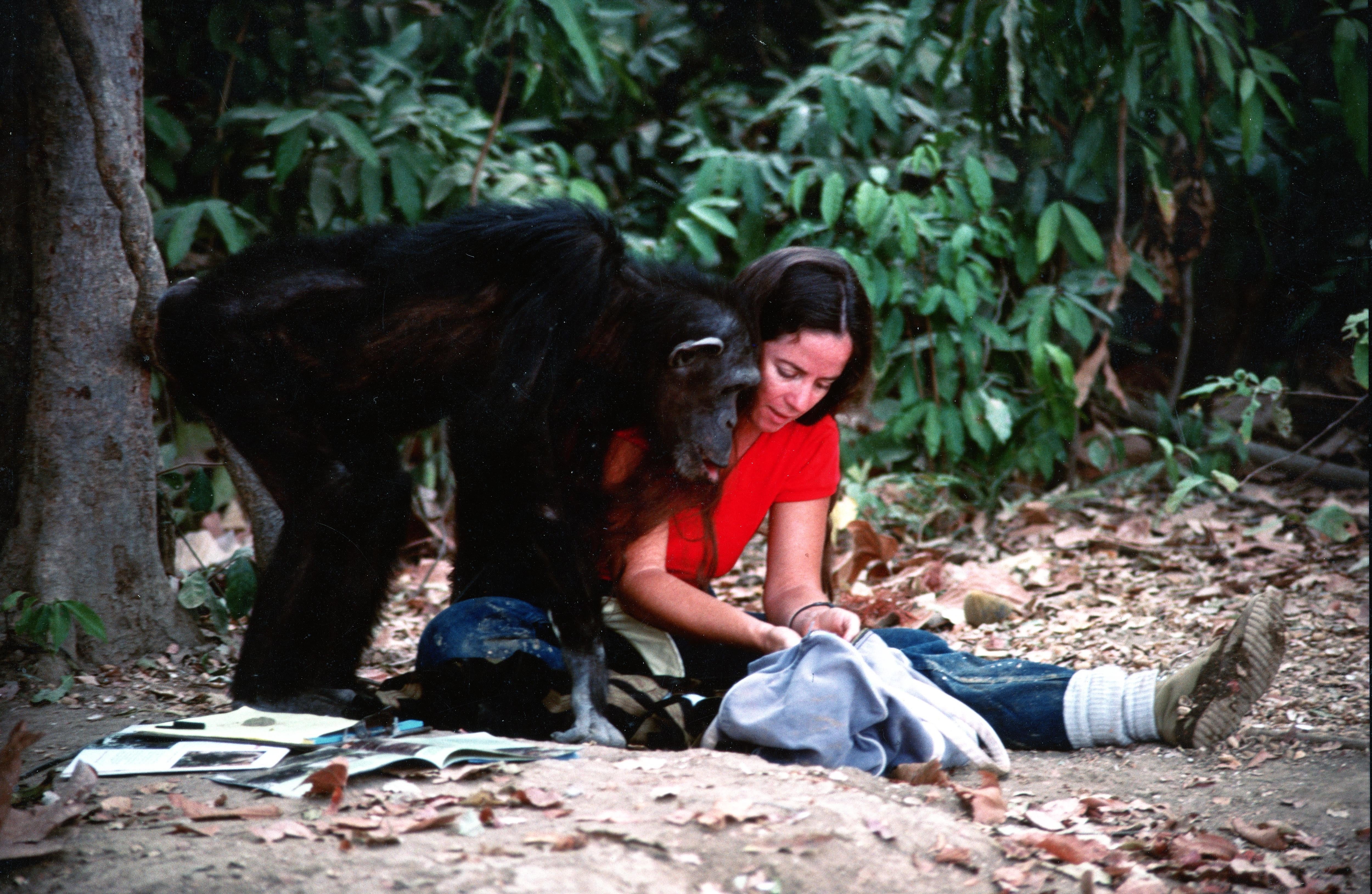Lucy the Human Chimp: Viewers share heartbreak at tale of ape that was raised like a girl
Animal brought up like human child with parents teaching her to eat with cutlery

Your support helps us to tell the story
From reproductive rights to climate change to Big Tech, The Independent is on the ground when the story is developing. Whether it's investigating the financials of Elon Musk's pro-Trump PAC or producing our latest documentary, 'The A Word', which shines a light on the American women fighting for reproductive rights, we know how important it is to parse out the facts from the messaging.
At such a critical moment in US history, we need reporters on the ground. Your donation allows us to keep sending journalists to speak to both sides of the story.
The Independent is trusted by Americans across the entire political spectrum. And unlike many other quality news outlets, we choose not to lock Americans out of our reporting and analysis with paywalls. We believe quality journalism should be available to everyone, paid for by those who can afford it.
Your support makes all the difference.Viewers have reacted to a “heartbreaking” new documentary, Lucy, the Human Chimp, which tells the story of Lucy Temerlin, a female chimpanzee raised as a human from birth in a domestic environment.
The KEO Films and Channel 4 documentary centres on an emotionally charged first-person account of the chimp’s life with Maurice and Jane Temerlin, psychologists from the University of Oklahoma.
In 1964, the chimp was taken away from her mother and raised as part of an investigation led by the couple into the principle of nature versus nurture.
The mammal was brought up like a human child where the parents taught her to eat with cutlery, read magazines, build models, dress, and make a gin and tonic.
However, at the age of 11, Lucy turned violent, and the couple was forced to hire a young graduate student named Janis Carter who used to care for the chimp and clean her cage when surprisingly, the pair formed a special bond.
Not long after that in 1977, the family and Carter moved to Gambia, Africa, to teach the mammal to adjust to the natural world where the chimp resided on an uninhabited island in the Gambia River for seven years.


During those years, Carter urged Lucy to collaborate with different chimps.
In the trailer, Carter said: “I was completely alone for years. She needed to do this in order to survive and in order for me to leave.
“It was emotionally difficult, there was no more chimpanzee/human, I just thought of us like family.”
The caretaker left Africa in 1985 after the human-chimp was attacked by a young male, taking her place as the leader.

Watch Apple TV+ free for 7 days
New subscribers only. £8.99/mo. after free trial. Plan auto-renews until cancelled

Watch Apple TV+ free for 7 days
New subscribers only. £8.99/mo. after free trial. Plan auto-renews until cancelled
“I think Lucy recognised that there were chimps, but I think she saw herself as a human. She couldn’t have survived on that island alone,” Carter said in a preview clip of the documentary shared by Channel 4 on Twitter.
One viewer wrote: “One of the hardest things I have watched in a long while, heartbreaking.”
Many spectators from around the world expressed anger at the idea of Lucy being separated from her mother, and praising Carter for being so supportive for the chimp.
One wrote: “Too sad, messing with nature. Poor Lucy, my heart breaks. Thank god for Janis!”
“Janis. What a woman. Incredible film.” wrote another person.
Another viewer wrote: “Got to credit Janis ... devoted her life to Lucy ... I reckon Janis needed Lucy Just as much as Lucy needed her.”
“I’m in bits after watching Lucy, The Human Chimp. Janis Carter did everything she could to help her and yet she still met a sad end,” said another.
Lucy, the Human Chimp aired on Channel 4 on 19 April and will air in the US on HBO Max on 29 April.
Join our commenting forum
Join thought-provoking conversations, follow other Independent readers and see their replies
Comments